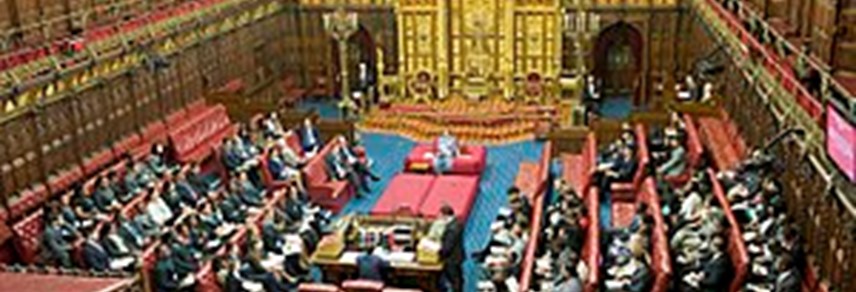
STRONGER CHARITIES FOR A STRONGER SOCIETY
The relationship between the government and charity sector is historic, yet not immune from turbulence. A report has been released following a House of Lords select committee enquiry on the role of charities in the UK, as well as the state of their relationship with government. After eight key recommendations were contributed as evidence by the Public Relations and Communications Association (PRCA), the committee has accepted all but one.
A need for greater access to training opportunities for trustees, volunteers and charity staff is highlighted in the report. The select committee also recommend instilling a commitment to remaining transparent in the face of wider scrutiny. As well as training, the report suggests that updating the voluntary governance code and a general atmosphere of more effective governance will strengthen the third sector.
One area identified by the report as inconsistent is the third sector’s use of digital platforms. Simon Francis CMPRCA, co-chair of the PRCA’s charity and not-for-profit group and founder member of Campaign Collective, says, “If the recommendations are implemented it will be a turning point in the way charities behave and the implications for communications and PR staff working in the sector are significant. The report recommends improved transparency and use of digital platforms which communications staff must be empowered to deliver.”
And, while some charities actively encourage the sharing of resources through technology, the report says that often, organisations could improve volunteer engagement and fundraising generation with greater technical knowledge. Yet this, says Francis Ingham MCIPR and director general of the PRCA, is an area where external stakeholders can step up. Ingham says, “The key to improving digital skills in charities is knowledge sharing and access to affordable training. This is where organisations like the PRCA must continue to deliver and members of our industry from all sectors must be prepared to step in and become trustees.”
The report also suggests a lack of funding is the main barrier preventing charities pursuing the latest technology in an increasingly digitally-driven age. With uncertainties such as Brexit imminent, predicted to cause a funding gap of around £200m, the government’s role in awarding charitable grants and piloting innovative schemes is a way of ensuring the chairtable sector is not at a disadvantage.
Chairman of the House of Lords Select Committee on Charities, Baroness Pitkeathley, says, “We found that charities lead the way with innovation, but that this is at risk of being stifled by the ‘contract culture’. And while advocacy is a sign of a healthy democracy, and is a central part of charities’ role, this role has been threatened by government.”
As a result, the report recommends the non-partisan role charities play in holding the government to account be maintained. Baroness Pitkeathley continues, “We hope that charities will be encouraged by this report; that the government will respect their role; and that in addition it will value the connections charities have with all sections of society, and encourage the vital scrutiny they provide.”
With £9.5bn donated to charity in 2015, there is no doubting the extent to which the UK benefits from public generosity. Implementing the above recommendations, for example enhancing and improving the role of digital, are just some of the practical ways in which the UK’s third sector can continue to flourish.
Summary of PRCA recommendations and references to the report:
R1. Recognise and respect the diversity of charities. MET – page 16
R2. Provide leadership to aide in re-setting the reputation of charities. MET
R3. Support the reform of the Transparency of Lobbying, Non-party Campaigning and Trade Union Administration Act (i.e. the “Lobbying Act”), in line with the Hodgson Review. MET – page 116
R4. Resist any future attempts to limit campaigners’ freedom of speech. PARTLY MET (especially met in regards to government regulation)
R5. Support for charities to innovate more in the digital arena – even if this means some projects will “fail.” MET – page 114
R6. Examine how group purchasing, approved suppliers (who have limited profit levels when working with charities) and strategic partnering with commissioners can help re-boot charities’ innovation. NOT MET
R7. Reject any notion of anti-advocacy plans by government, but if such plans are introduced they should reflect the diversity of the sector and be on a level playing field with corporate suppliers to government. MET – page 114
R8. Resist the attempts to think the answer to a “better” charity sector is more regulation via the Charity Commission. MET – page 36

